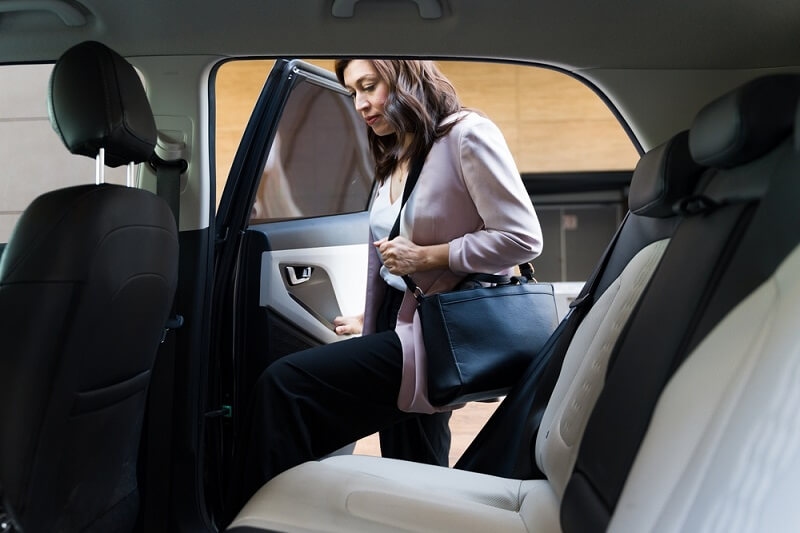Best Commuter Cars for Everyday Driving Comfort & Mileage

The ideal commuter vehicle likely strikes a holistic balance between performance, comfort, and efficiency. For most commuters, a perfect car provides all the following: superior highway mileage, superb ride comfort, and a quiet cabin that enables a relaxing journey on the highway. Additionally, a vehicle that achieves good gas mileage and offers attractive ergonomic features makes each commute a rewarding experience.
Whether you're racking up miles on the highway or battling city traffic, the perfect commuter vehicle can enhance your energy and productivity throughout the day.
Key Traits of the Best Commuter Cars
The best cars for commuting offer many of the same features to make driving easier and less exhausting. Such vehicles offer comfort, dependability, and utility on a daily basis.
Key Features to Look For:
- Fuel Economy: An efficient engine or a hybrid drive system will save on gas.
- Ride Comfort: A suspension that absorbs bumps and vibrations.
- Quiet Cabin: A well-engineered cabin that reduces road sounds and noise.
- Ergonomics: Comfortable seats and controls that can be operated without strain.
- Highway Mileage: A boost in highway efficiency will come from a vehicle now optimized with an aerodynamic shape and well-calibrated transmissions.
Together, all these features make a car perfect for commuters who enjoy comfort and performance.
Ride Comfort for Long Drives
The ride comfort is one of the critical characteristics of the best commuter cars. A car that rides smoothly and remains stable and balanced will help mitigate fatigue and tiredness during long commutes.
Manufacturers provide this type of comfort by utilizing sophisticated suspension systems, high-tech shock absorbers, and plush seat materials. Generally, cars with independent suspension on all four wheels offer excellent comfort across various road types.
Elements of Ride Comfort:
- Seats that are well-cushioned with the added feature of lumbar support, easily adjustable for comfort
- Suspension that is presumably tuned to offer balance support yet remains stable for handling
- Tires that deflect vibrations from rough road surfaces
- Cabin acoustical insulation to help deflect harsh road feedback
A comfortable ride will aid your mind and improve focus, making it safer and easier to drive every day.
Quiet Cabin Experience

A quiet cabin is another essential characteristic for commuters who spend hours behind the wheel. Noise can cause fatigue, stress, and distractions. The top commuter cars emphasize sound-deadening materials and vibration suppression systems that achieve a peaceful cabin environment.
Laminated glass and better seals in the doors are often found in higher-end cars. And now mid-sized, compact, and regular sedans are designed explicitly with more tranquil cabins.
Features That Contribute to a Quiet Cabin:
- Materials inside the doors and carpeting that absorb sound.
- Seals in the door and windows that disrupt wind noise.
- Engine mounts are intended to reduce vibration.
- New designs that help with aerodynamic drag and turbulence.
A more peaceful driving experience enhances comfort and makes listening to music, podcasts, or making hands-free phone calls more enjoyable.
Fuel Economy and Efficiency
When evaluating the best machines for commuting, fuel economy is generally the most crucial factor. Fuel-economy-rated vehicles will save you money on fuel, lower your environmental footprint, and allow you to visit the gas station less frequently.
Modern commuting vehicles are highly fuel-efficient due to their lightweight construction, hybrid drivetrains, and sophisticated transmissions. There are fuel-efficient options available in both compact sedans and small crossovers that will perform well on the highway.
How Automakers Improve Fuel Economy:
- Small turbocharged engines with higher efficiency
- Hybrid and mild-hybrid technology, which recovers energy
- Continuously Variable Transmissions (CVTs), which match the optimal shifting ratios
- Start-stop systems, which allow savings on fuel when stopped
For a daily driver, fuel economy equals money saved over time, thereby having one of the most significant factors you could consider in deciding on the commuter vehicle.
Highway Mileage and Long-Distance Comfort
If you often drive long distances or travel by car on weekends, you will want to pay attention to highway mileage. Highway mileage is usually the most crucial factor when driving frequently, as the best commuter vehicles are designed to achieve the best fuel mileage at highway speeds and minimize gas station stops.
Vehicles with streamlined shapes, made from lightweight materials, and equipped with capable powertrains will achieve the best highway mileage. Cruise control and driver assistance features will also enhance the experience of long-distance travel.
Tips for Getting the Most Highway Efficiency:
- If you maintain a consistent speed, you will get the best fuel economy
- If your tires are maintained at optimal inflation, you will lessen drag
- Utilize an eco-driving mode if the vehicle has this option
- Check to see if the engine is getting proper maintenance to get the best performance
Vehicles that offer good highway mileage often provide a combination of a quiet ride and comfortable interiors, making them the best options for highway driving.
Ergonomic Features for Driver Well-Being
Comfort is more than just suspension and materials—it’s also about ergonomics. Cars with intelligent ergonomics make long distances less tiring by supporting the natural position of the body and minimizing excess movement.
Designers consider everything from the height of the seat to the position of the steering wheel. Well-thought-out cars place the controls at your fingertips, make it easy to adjust the seating position, and feature armrests conveniently located.
Typical Ergonomic Enhancements:
- Multi-way power-adjustable seats with lumbar support.
- Tilt and telescoping steering wheels.
- Plan memory seat settings for multiple drivers.
- Strategically place buttons and touch screens in intuitive locations that you can reach easily.
When ergonomics are part of the design of commuter cars, it symbolizes that car manufacturers care about the health of the driver, minimize muscle tension, and help them focus on driving and vehicular safety.
Hatchbacks and Crossovers for Versatile Commuting
Hatchbacks and small crossovers can provide commuters who want to maximize cargo space and efficiency the best of both worlds. Aside from offering the cargo capacity, ways to maximize storage space, and the same quiet cabin structure inside, crossovers and hatchbacks still feature the same ergonomic features that sedans do. The crossover value has increased over time, mainly due to higher seating positions and quieter driving sensations. Most modern crossovers continue to offer good fuel economy and are excellent vehicles for families or anyone who finds cargo versatility appealing.
Reasons to Drive a Hatchback or Crossover:
- Roomy interiors and usable cargo capacity
- Expires ride comfort in the city and on the highway
- Higher seating position improves visibility
- The most current infotainment features and safety features
Ultimately, the versatility of hatchbacks and small crossovers enables them to serve as excellent daily commuter vehicles for individuals seeking diverse uses.
Technology Enhancements in Commuter Cars
Technology has transformed what we expect from the best commuter cars. Modern vehicles now come equipped with digital assistants, smartphone integration, and advanced driver-assistance systems that simplify long commutes.
Adaptive cruise control, lane-keeping assist, and automatic emergency braking contribute to stress-free driving. Meanwhile, infotainment systems provide connectivity and entertainment on the go.
Notable Tech Features That Enhance Commuting:
- Wireless charging and smartphone integration
- Voice-activated controls for hands-free operation
- Adaptive headlights for nighttime visibility
- Digital instrument clusters for real-time fuel and trip data
These tech-focused upgrades elevate comfort and convenience, ensuring a smooth and enjoyable journey every day.
Balancing Cost and Comfort
While luxury sedans can easily qualify as some of the best commuter cars, many mid-range and budget-friendly models also deliver comparable benefits. The key is finding the right balance of comfort, performance, and cost efficiency.
Drivers who prioritize long-term value often seek cars that combine solid fuel economy, reliable engines, and low maintenance costs with features such as supportive seats and sound insulation. Choosing a car that fits your needs, rather than just your budget, ensures greater satisfaction over time.
Smart Buying Tips:
- Test-drive multiple models to compare comfort and visibility
- Review cabin noise levels during highway drives
- Consider maintenance plans or warranties
- Prioritize fuel-efficient trims for cost savings
A thoughtful purchase will reward you with a car that serves you well for years, keeping your commute relaxing and economical.
Final Verdict on the Best Commuter Cars
Selecting the best commuter cars depends on your individual priorities—be it efficiency, comfort, or advanced technology. Vehicles that combine fuel economy, ride comfort, and a quiet cabin are the most rewarding for everyday use.
With innovative design and thoughtful ergonomic features, today’s commuter cars transform even long drives into peaceful and efficient experiences that elevate daily travel.
This content was created by AI

